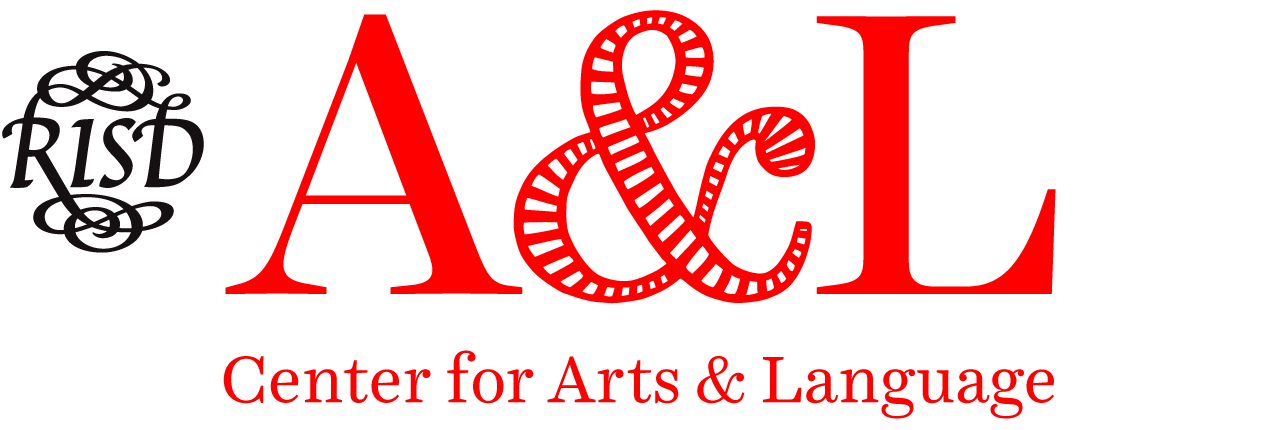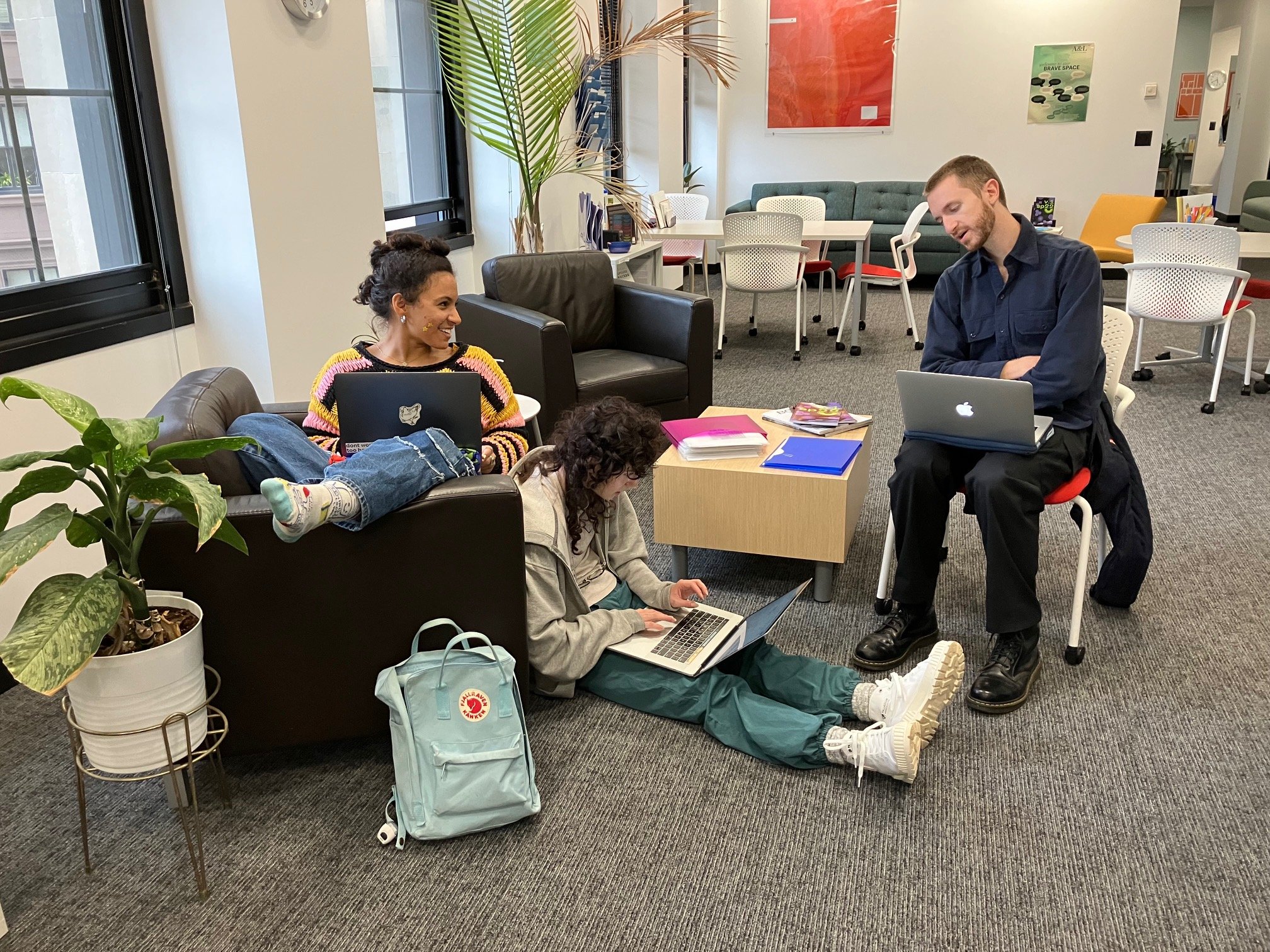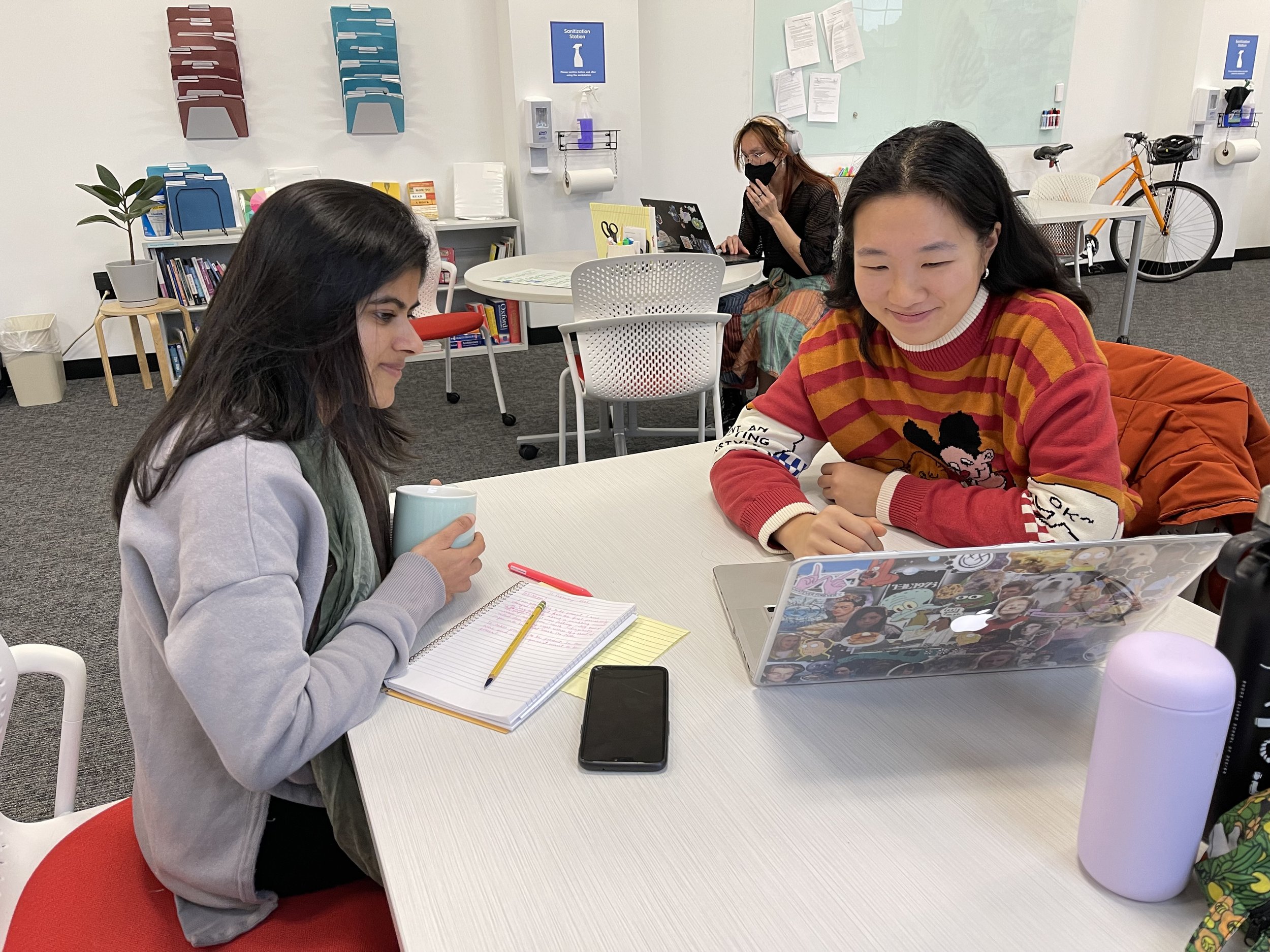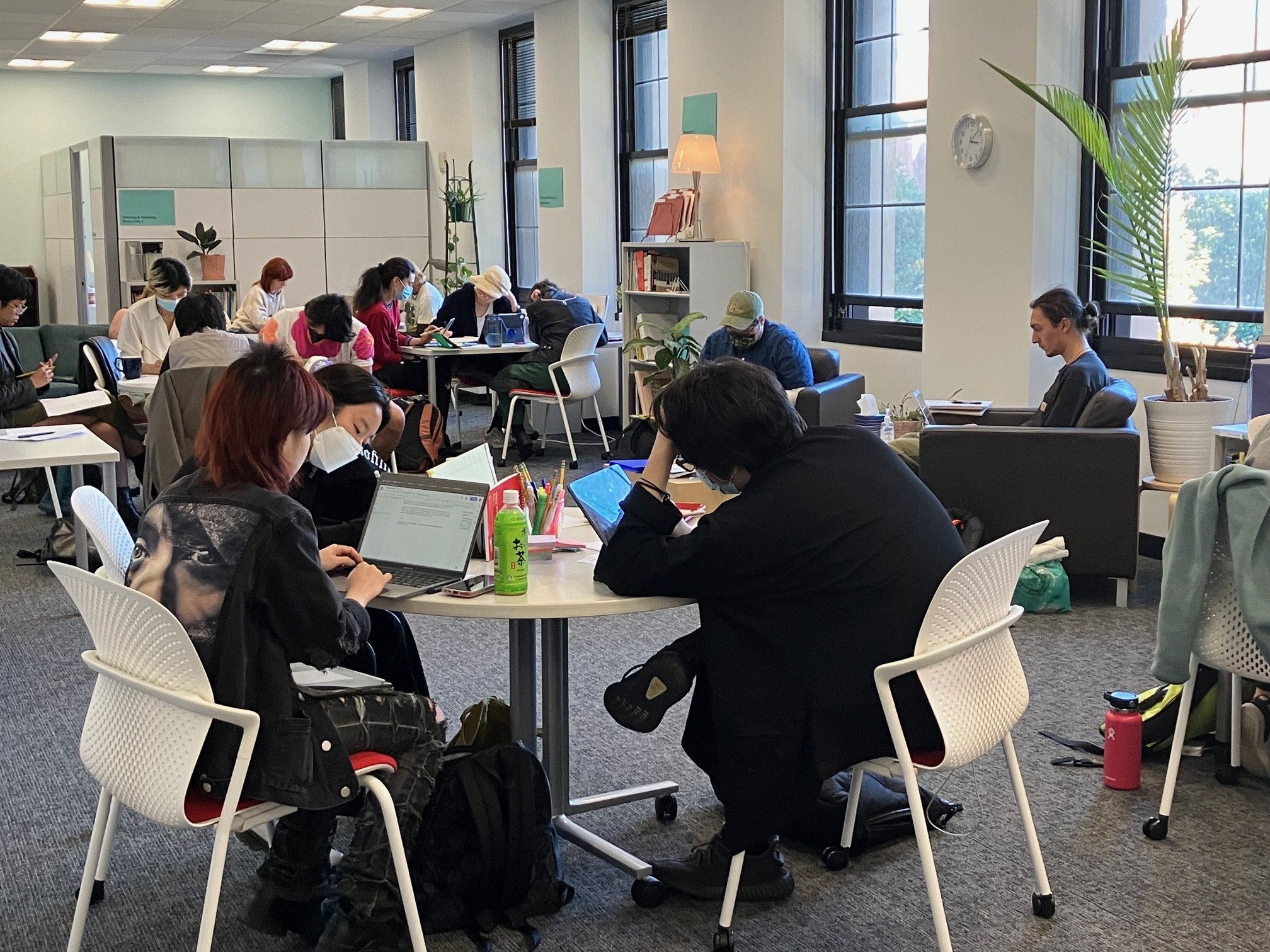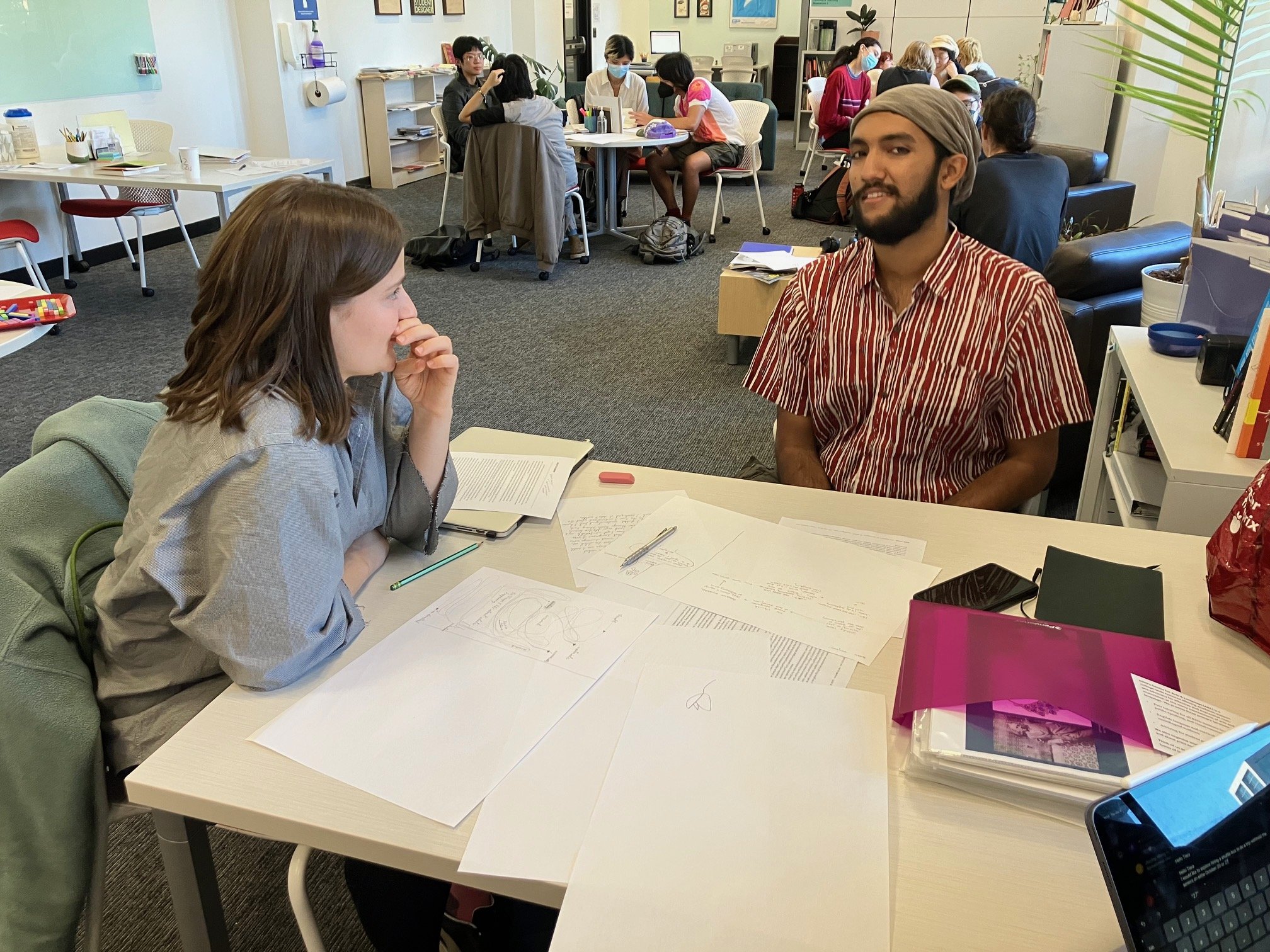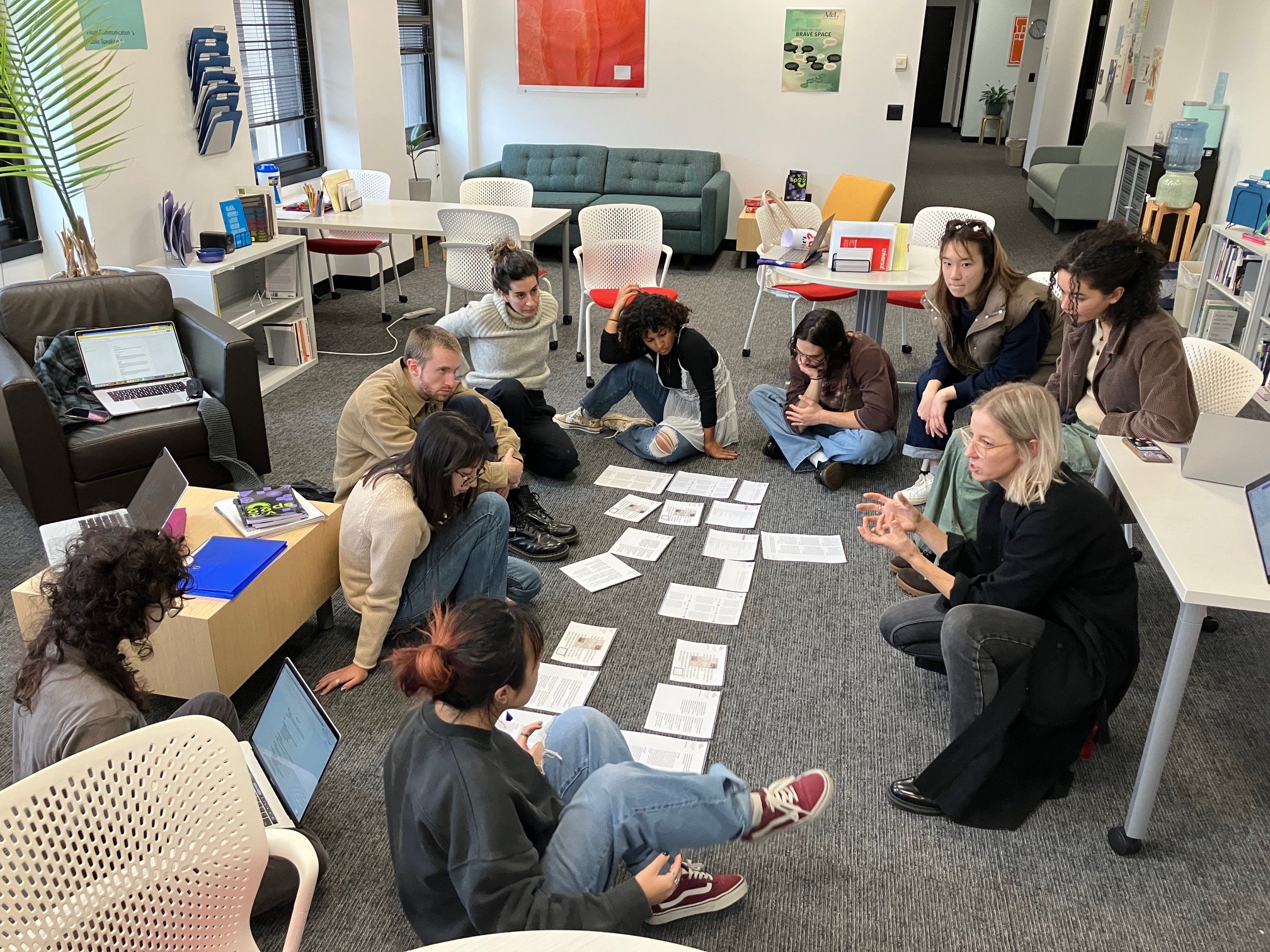Our Mission
A&L’s mission is to amplify and fortify artists’ and designers’ voices at RISD and in the world.
That’s our big picture. In the everyday, A&L is a space for collaboration, a place where staff and peer tutors sit together with students one-to-one and help draw the ideas out of your head, into the room, and onto the page. We are sounding boards offering undivided attention and care, solid advice, and relevant resources. Peer tutors help with all forms of communication—written, spoken, visual, academic, creative, or professional—at any stage of your process. Professional staff provide specialized support for multilingual learning. We also collaborate with faculty on creating assignments, in-class workshops, and their own projects. And finally, we’re headquarters for RISD student publishing.
When you put it all together, we simply love the many intersections of arts and language and the joy of thinking and learning together.
Our Values
We are student-centered. We are advocates for students’ right to their own voices, honoring individuality and multiplicity in communication styles. Any communication involves choices that shape the text in big and small ways: the best word to represent an idea, which content to include or omit, how to meet or resist expectations. We aim to help students understand the options and their implications, and ultimately make their own decisions. The work we do always starts with questions so we can follow students’ goals—within a session, an assignment, and long-term. We are asset-oriented, drawing on students’ existing strengths and helping to cultivate new ones. Our methods are verbal, visual, experiential, and adaptable to what works best for each student.
We are human-centered. We understand and honor communication as a representation of each person’s unique identities, languages, cultures, experiences, and beliefs. Writing is a manifestation of selfhood and an opportunity to discover, think, learn, express, and connect as fellow humans. We value authentic voices, deeply, and the arrival of Generative AI has magnified this value for us. GenAI may save time and effort, but it’s not writing, and it’s not “you.” It impersonates ideas, borrows from and adds to biased and inaccurate information, and overuses diminishing natural resources. Even “just a little” AI use can interfere with the chance to engage with the human experience. For these reasons, we generally advise leaving AI aside, especially as a college student in formative educational and developmental years. Trust yourself. Trust that others will want to read your authentic voice and thoughts, even if they aren’t “polished.” And trust us to be curious and nonjudgemental if you want to talk about AI use and literacy anytime.
We are committed to self-expression, listening, and dialogue. Being able to verbalize ideas supports understanding oneself, feeling understood, and engaging in many contexts, from creative practice to scholarship to activism. We strive to help students develop the awareness, skills, and confidence they need to express themselves authentically and effectively. We understand communication as social and change-making; we listen with open ears and minds, value different perspectives, and approach difficult topics with awareness of our own and others’ internal biases.
We draw on progressive theories and methods in literacy education. Students sometimes seek our services to gain membership to discourse communities of Western academic writing and standard English language proficiency. We foster self-awareness of and access to academic expectations and conventions. We also understand the ways in which academia and writing centers have perpetuated Western scholarly rhetoric and monolingualism. We encourage making space for varied voices and rhetoric, including moving between languages and dialects.
We welcome communicative play. Given the long tradition of experimentation in artists’ and designers’ writings, we understand rhetorical play—subjectivity, fragmentation, poetics, for example—as an asset in some contexts. Where precision and persuasion are typical attributes of academic writing and speaking, ambiguity and complexity are typical attributes of art and design, and can be engaged in meaningful ways when we communicate about and around art and design.
We strive to be an inclusive and accessible space for the whole RISD community. Our work and values guide us in making our center a place for people of any race, ethnicity, nationality, physical and/or cognitive ability, gender identity, sexual orientation, socioeconomic background, religion, and age to feel welcome. We believe that students of color, multilingual learners, first-gen students, and students with learning differences, all of whom we serve in large numbers, deserve especially active inclusion and support.
We are always working to make our center, website, services, and resources non-discriminatory and non-disabling. We invite community feedback at any time via the following channels:
Reach out to A&L Director Jen Liese (jliese@risd.edu).
Report concerns about social equity and inclusion to: sei@risd.edu
Report concerns about accessibility to: disabilitysupportservices@risd.edu
Report an incident of bias, discrimination, and/or harassment to Equity & Compliance.
